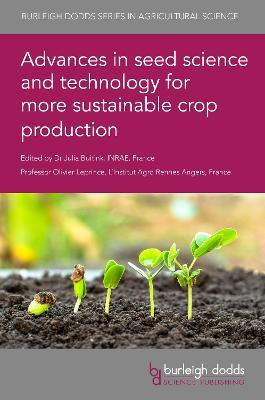Advances in Seed Science and Technology for More Sustainable Crop Production(English, Hardcover, unknown)
Quick Overview
Product Price Comparison
"The editors of this excellent book, Dr Julia Buitink and Dr Olivier Leprince, are two world-renowned seed scientists. They have brought together a fantastic team of experts for the ten book chapters with topics covering the broad and diverse field of seed science, providing the latest technological advances and bridging the fundamental and applied research relevant for supporting a more sustainable crop production. In summary, this is a highly attractive and comprehensive book into advances in seed science and technology for more sustainable crop production, written by world experts. It is a valuable source of information for advanced-level university students, academic and industrial researchers, and other professionals across a wide range of plant science disciplines and beyond in seed sector agencies. The attractive format of the chapters with many excellent colour figures and extensive lists of relevant literature are beneficial for university-level teaching and industrial workshops. This illuminating book addresses the key challenges facing seed science and deserves high recommendation." (Book Review by Professor Gerhard Leubner, Royal Holloway University of London, UK - Published in Seed Science Research) With the continued effects of climate change threatening the security of the global food system, there is a greater emphasis on ensuring successful crop establishment as a means of optimising agricultural production. Advances in seed science and technology for more sustainable crop production considers how an improved understanding of seed quality, germination and seedling emergence can address this challenge. The book reviews the development of new techniques to ensure seed quality control, including seed phenotyping, as well as the role of genetic and environmental factors in determining seed longevity. In its comprehensive exploration of seed science and technology, the book highlights how an informed understanding of seed biology can contribute to mitigating the effects of climate change on seed quality and consequently crop production.


